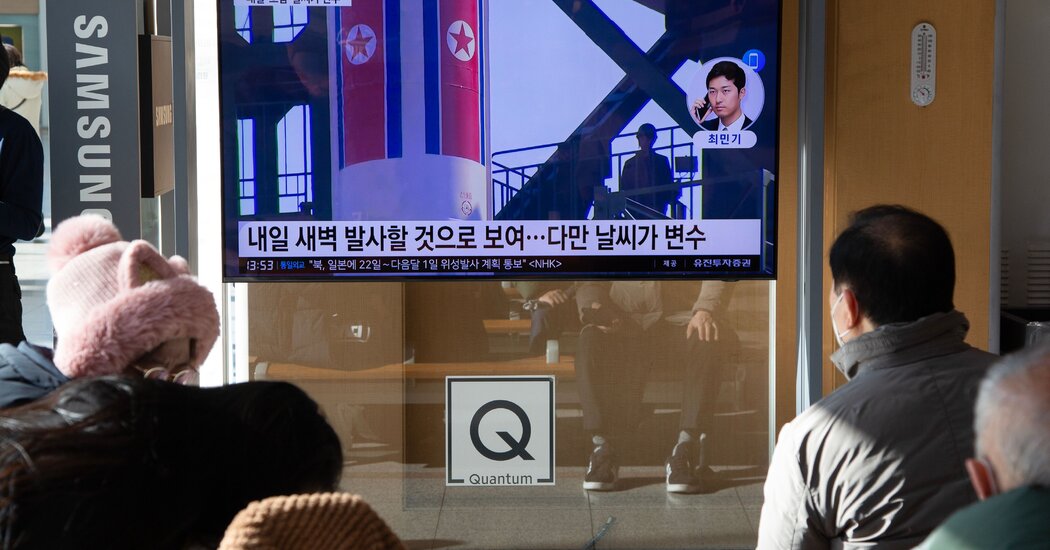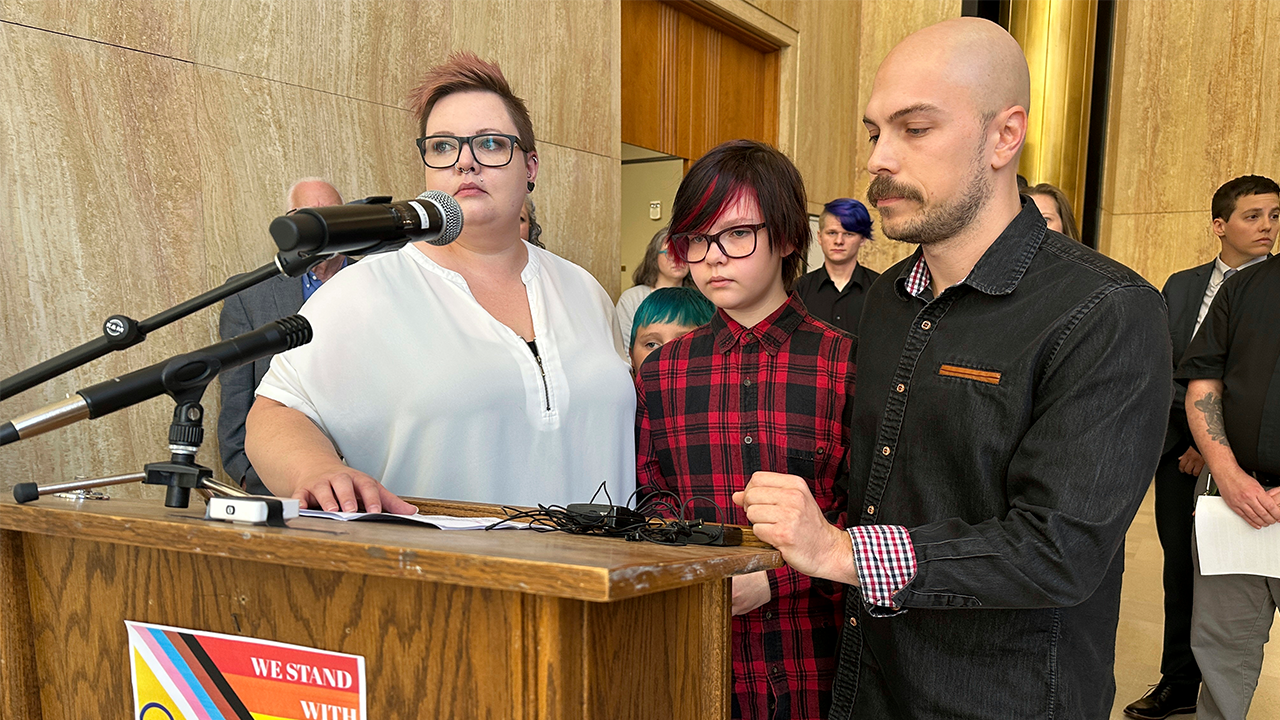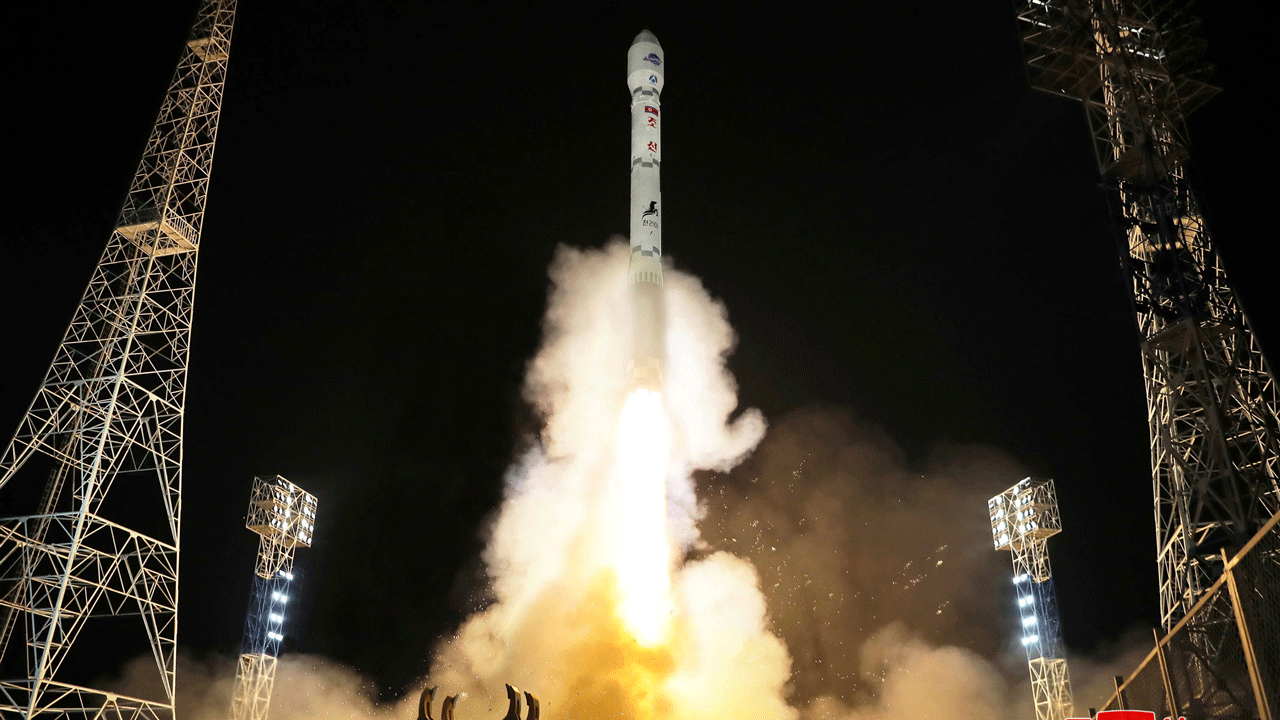North Korea launched a rocket on Tuesday in what South Korea said was an attempt to put its first military reconnaissance satellite in orbit, this time with technological help from Russia.
The rocket flew to the south over the sea between the Korean Peninsula and China, the South Korean military said in a brief statement. The United States, South Korea and Japan have all placed their militaries on alert to guard against such a launch, concerned that debris from the North’s rocket might fall on the Asian allies’ territories. They also want to collect intelligence on the rocket to determine the implications its satellite program may have on regional stability.
North Korea launched its new Chollima-1 rocket from its satellite launching station in Tongchang-ri near its northwestern border with China in May and again in August. The rocket flew on the same southbound trajectory, seeking to place satellites in orbit so that North Korea could better monitor American and South Korean military movements in the region and improve its nuclear-attack capabilities. But both times, the rockets malfunctioned and failed to thrust the Malligyong-1, the North’s first homemade military spy satellite, into orbit.
North Korea later confirmed Tuesday’s rocket launch, saying it had finally succeeded in placing the satellite in orbit after the two failed attempts.
And this time, by receiving assistance from Russia, the North was able to overcome its technological shortcomings, according to South Korean officials who have monitored its launch preparations in Tongchang-ri in recent weeks.
After studying the debris of a previous failed launch, South Korea said that the North Korean satellite was so crude that it could never serve as a functioning spy satellite even if placed in orbit.
Still, the launching on Tuesday was a proud moment for the North’s leader, Kim Jong-un, who watched the blastoff at the scene of the launch. Modernizing his country’s military strength has been his main selling point as its leader. Buoyed by the success, the North’s space agency will ask the ruling Workers’ Party to support its plan to send more spy satellites into space, the North Korean news agency said.
The rocket’s launching led the Japanese government to warn residents of the island of Okinawa to take cover inside buildings or underground.
Moscow’s help with Pyongyang’s troubled satellite program was part of a package of incentives North Korea had been expected to receive from Russia in return for the North’s providing artillery shells and other badly needed munitions to help Russia’s war in Ukraine, the South Korean officials said.
The North’s launching on Tuesday defied multiple warnings from the United States, South Korea and Japan against such launches. Under United Nations Security Council resolutions Moscow had agreed to, North Korea is banned from launching space rockets because it had used them in the past to develop its long-range ballistic missile capabilities. The resolutions also prohibit countries from buying weapons from North Korea or transferring technology to help advance the North’s nuclear and rocket capabilities.
But the war in Ukraine is bringing Moscow and Pyongyang closer together, as the old Cold War-era allies have a shared interest in confronting their common enemy, the United States.
North Korea’s leader, Kim Jong-un, has what his Russian counterpart, Vladimir V. Putin, desperately needs: artillery shells, rockets and other conventional munitions that can help replenish Mr. Putin’s depleted stores of weapons as his invasion of Ukraine becomes a drawn-out war of attrition.
In return, Mr. Kim hopes to get food and fuel from Russia to help alleviate his country’s chronic shortages, as well as spare parts to upgrade its aging Soviet-era tanks and warplanes. North Korea also seeks technical know-how from Russia to advance its nuclear and rocket programs, which otherwise would not have been available under international sanctions, according to officials and analysts.
Moscow and Pyongyang have denied they are engaging in such transactions. But when Mr. Kim and Mr. Putin met in the Russian Far East in September, they agreed to broaden bilateral cooperation.
They disclosed few details about the meeting, but Mr. Kim indicated what he wanted by visiting a space launch center, a fighter jet manufacturing factory and a naval base during his trip in the Far East.
Last month, the White House said North Korea had provided 1,000 shipping containers’ worth of munitions and military equipment to Russia, shipments that began ahead of the Kim-Putin meeting. South Korea’s defense minister, Shin Won-sik, told KBS-TV over the weekend that North Korea has shipped an additional 2,000 containers to Russia.
The North’s repeated attempts at satellite launches come as a space race is heating up in the sky over the Korean Peninsula. South Korea is scheduled to launch its own first military reconnaissance satellite on Nov. 30 on board Space X’s Falcon-9 rocket and plans to deploy more satellites in coming years using its own rockets.
As North Korea has drawn closer to Russia and China, South Korea has expanded military cooperation with the United States and Japan. The U.S. aircraft carrier Carl Vinson steamed into Busan, a port on the southeastern tip of South Korea, on Tuesday in a show of America’s defense commitment to its longtime ally.
On Monday, South Korea indicated that if North Korea pressed ahead with its satellite launch, it would suspend part of an agreement the two Koreas signed in 2018 to create no-fly and no-live-fire buffer zones around their border.
That accord was meant to reduce military tensions along the border. But North Korea has flouted the agreement numerous times, as when it fired artillery shells into the buffer zones or sent drones across them, said Lt. Gen. Kang Hopil, the South Korean military’s chief operations officer.
South Korea’s current conservative government has been highly critical of the 2018 agreement, which was created during a brief period of inter-Korean rapprochement. But if the South resumes surveillance drone operations along the border, North Korea may respond with further military provocations, said Leif-Eric Easley, a professor of international studies at Ewha Womans University in Seoul.




